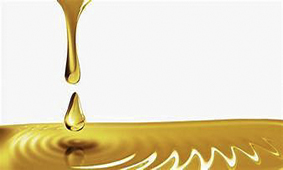
India's fuel demand falls by 50pc in April

Demand for all fuels declined by 50pc from 18.32mn t in April 2019, according to data from state-controlled refiners IOC, Hindustan Petroleum (HPCL) and Bharat Petroleum (BPCL).
The estimates do not include data from private-sector refineries Reliance Industries and Nayara. But these companies supply only around 10pc of the country's transport fuel demand and export most of their output, according to oil ministry data.
Demand for diesel fell by around 61pc, gasoline use dropped by 64pc and jet fuel declined by 94pc from a year earlier, according to industry data from the state-controlled companies. Fuel sales saw a record slump after India imposed a 21-day nationwide lockdown from 25 March-14 April to combat the spread of Covid-19. The lockdown has been extended to 3 May.
India in April 2019 used 693,000 b/d of gasoline, 1.8mn b/d of diesel, 169,000 b/d of jet fuel and 18.32mn t of all fuels.
IOC, BPCL and HPCL operate 223 of the 255 jet fuel outlets in India and 61,490 retail outlets in the country, or 89pc of the total.
Jet fuel demand has experienced the greatest impact as most of the 650 planes across Indian airlines are grounded, with only cargo and special purpose flights permitted. It remains unclear if the aviation sector will resume operations on 4 May as the airlines were instructed by the Directorate General of Civil Aviation not to take bookings after May 3. The instruction came after airlines accepted bookings from 15 April, prior to the extension of the lockdown, and then refused refunds to customers and offered credit.
India's diesel consumption averaged 1.36mn b/d in March, the lowest since September 2016 and down from 1.79mn b/d a year earlier. Transportation accounted for the bulk of diesel demand, with mining and agriculture making up the rest. Gasoline consumption fell to 588,000 b/d in March, from 703,000 b/d a year earlier, to the lowest since January 2018.
India relaxed lockdown restrictions from 20 April in non-hotspot areas for farming, fisheries, animal husbandry, plantations and fertilizer units to allow harvesting operations, but continued to freeze most economic activity until 3 May. The government also allowed additional activity including industries in rural areas, manufacturing units in special economic zones, export-oriented units, brick kilns, food processing and jute industries, as well as road construction in rural areas to resume today. But certain states like Telengana and Punjab have disregarded Delhi's orders and imposed complete lockdowns, only permitting harvesting activities.
The relaxations may temper the drastic drop in fuel demand, said director of refineries at BPCL, R Ramachandran. Demand for transport fuels may fall by only 50pc for the entire month.
There were over 17,265 confirmed cases and 543 deaths in India as of today, with Maharashtra, and Delhi among the most affected, according to government data. But only around 300,000 people have been tested, a fraction of the 1.3bn people in the country, compared to over 4mn tested in the US, a country with a population of 328mn.
The quality of testing is also an added concern. The West Bengal government accused the Indian Council for Medical Research, India's health organisation leading Covid-19 testing, of providing faulty kits that gave inconclusive results. The government is also holding details of whether cases are asymptomatic. Rapid antibody kits supplied by China that are utilised have come under scrutiny by western regulators. It remains nearly impossible for an average person to get tested, despite a willingness to pay.
The International Monetary Fund (IMF) forecasts India's economy to grow at only 1.9pc in the April 2020-March 2021 fiscal year, the lowest level in three decades, compared with an estimated 4.2pc in 2019-20. The World Bank projects that India will grow around 1.5-2.8pc in 2020-21. But India's former chief economic advisor Arvind Subramanian said that the World Bank and IMF were too optimistic in their projections and that even a month's lost output could lead to a contraction.
By S Dinakar


Gold price edges up as market awaits Fed minutes, Powell speech

Glencore trader who led ill-fated battery recycling push to exit

Emirates Global Aluminium unit to exit Guinea after mine seized

Iron ore price dips on China blast furnace cuts, US trade restrictions

Roshel, Swebor partner to produce ballistic-grade steel in Canada

Trump weighs using $2 billion in CHIPS Act funding for critical minerals

US hikes steel, aluminum tariffs on imported wind turbines, cranes, railcars

EverMetal launches US-based critical metals recycling platform

Afghanistan says China seeks its participation in Belt and Road Initiative

Energy Fuels soars on Vulcan Elements partnership

Northern Dynasty sticks to proposal in battle to lift Pebble mine veto

Giustra-backed mining firm teams up with informal miners in Colombia

Critical Metals signs agreement to supply rare earth to US government-funded facility

China extends rare earth controls to imported material

Galan Lithium proceeds with $13M financing for Argentina project

Silver price touches $39 as market weighs rate cut outlook

First Quantum drops plan to sell stakes in Zambia copper mines

Ivanhoe advances Kamoa dewatering plan, plans forecasts

Texas factory gives Chinese copper firm an edge in tariff war

Energy Fuels soars on Vulcan Elements partnership

Northern Dynasty sticks to proposal in battle to lift Pebble mine veto

Giustra-backed mining firm teams up with informal miners in Colombia

Critical Metals signs agreement to supply rare earth to US government-funded facility

China extends rare earth controls to imported material

Galan Lithium proceeds with $13M financing for Argentina project

Silver price touches $39 as market weighs rate cut outlook

First Quantum drops plan to sell stakes in Zambia copper mines

Ivanhoe advances Kamoa dewatering plan, plans forecasts

















